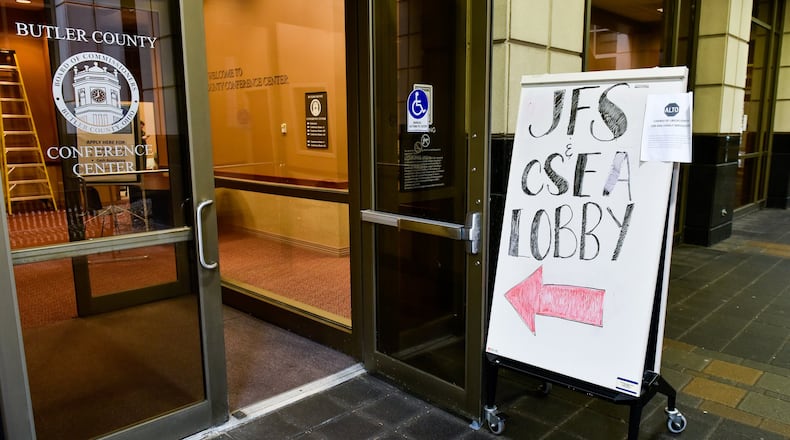“Recently passed federal legislation is bringing the temporary SNAP allotment to an end after February,” Damschroder said. “We will be communicating to recipients, county agencies, and our partners such as foodbanks, that normal SNAP payments will resume in March.”
Butler County JFS Executive Director Julie Gilbert said essentially that means people will received at least $95 less per month to buy food for their families.
The food stamp program is federally funded and meant to supplement the food budget of families in need so they may purchase healthy food and move toward self-sufficiency. Eligibility, as well as monthly allotments, vary based on factors such as income and household size.
The Families First Coronavirus Response Act allowed states to request emergency allotments for households participating in SNAP. As a result, ODJFS has been providing emergency allotments to SNAP households since March 2020. Congress recently passed the Consolidated Appropriations Act of 2023, which ended the program.
The pandemic is essentially over but the aftereffects continue to linger, Gilbert said “we just don’t know” how bad this will be for Butler County residents.
“The emergency allotments were always going to be temporary but we still know this is unsettling to recipients who’ve counted on this additional food assistance,” Gilbert said. “Especially at a time when we’re looking at high inflation and costs.”
The supplements began in March 2020 and through December Butler County residents were paid a total of $309.7 million in food stamp benefits and $121 million of that amount was from the COVID benefit. Overall, Butler County spending on food stamps in 2019 was $49.8 million, it jumped to $81.1 million in 2020 and $113.1 million in 2021.
Terry Perdue, executive director of the Shared Harvest Foodbank, said the hardship the disappearing supplemental food stamps will cause is compounded by rising food costs. He said he just spent more than $200,000 buying food “which is not something we typically do, in anticipation.”
“One thing we’ve been tracking over this past year is the increase in food costs, what that means is less food that’s available for these families, that compels them to come to our food pantry network,” Perdue said. “What that does for us here at Shared Harvest is we have to plan according to what we anticipate the need to be, which means we’re going to our funders and requesting more food to mitigate that increase. It’s a challenge.”
The relaxed Medicaid COVID-19 pandemic rules are also being erased. During the height of the pandemic, Gilbert’s office was not allowed to disqualify Medicaid recipients due to a change of circumstance, such as an income increase or other variables.
Gilbert said previously in April 2020 they had roughly 89,000 people utilizing the Medicaid pandemic benefit and 106,000 last April.
Gilbert said “Medicaid is also going to be unwinding, however we are still waiting on some guidance from the federal government on how that will be rolled out.”
She said it will likely involve her staff having to “re-determine people’s eligibility” for Medicaid benefits.
She said the biggest impact will be on their food stamp clients because the bigger benefits have become commonplace.
“I think that given that they have been receiving and counting on this additional food assistance for the last three years they have incorporated it into their monthly budgets,” Gilbert said. “So I think every little bit does count now days.”
She said the county and state have no control over the rollback of these pandemic benefits but she is urging people to take advantage of the services offered through her OhioMeansJobs division for training and job seeking assistance. She also asked people to consider increasing donations to the various food pantries and other assistance agencies.
The backlog of applications for Emergency Rent Assistance is more evidence help for the needy still exists and it is an impact of the pandemic.
The county was awarded $20.4 million in emergency rent and utility assistance from the federal government to hand out. The Butler County commissioners partnered with Supports to to Encourage Low-income Families (SELF) to manage the program.
Before the holidays, Executive Director Jeffrey Diver told the Journal-News it had awarded $15.3 million to 2,472 needy households with the commissioners’ federal funds and $7.8 million to 2,346 families with other grant money they have received.
Because they have been inundated with new applications — the backlog stood at around 450 in December — they have again had to pause accepting new applications while they help people who are facing possible eviction.
Diver said the food stamp issue is also obviously difficult.
“It’s concerning, anytime there’s a support for low income individuals and families that is taken away the question is how will that additional support be made up,” Diver said. “For many hard working families there aren’t options beyond multiple jobs, or jobs working long hours in order to feed their families.”
About the Author

